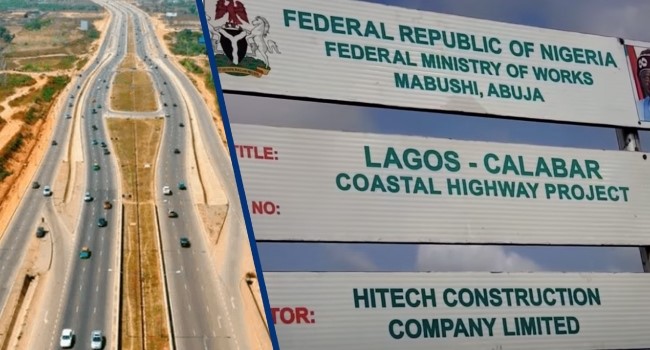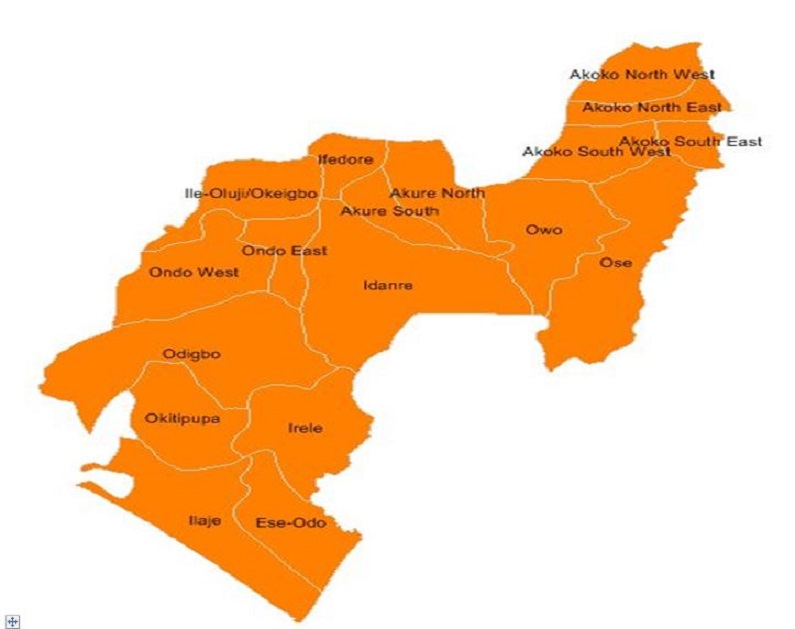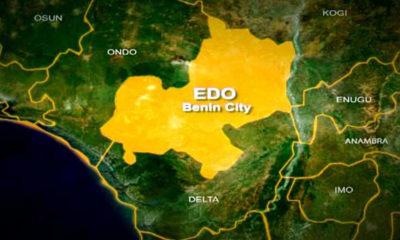NEWS
FG Reroutes Lagos-Calabar Highway By 9km

The Nigerian government has yielded to stakeholders and the public by rerouting the Lagos-Calabar highway by 9 kilometers, away from the shoreline, and back to the initial route.
The Minister of Works, Engr David Umahi, made the disclosure in Lagos on Thursday while addressing stakeholders.
He revealed that 750 homes situated in the vicinity of the highway had been designated for removal.
The decision to reroute was made so as to protect the submarine cables, an Independent Power Plant (IPP) and other critical business infrastructure, which would have been affected with strong impacts on the security and the economy.
Engr Umahi said, “We have three critical infrastructure that are located on one spot. One is the 2Africa submarine cable that cuts across 33 countries connecting about three billion people. That cable landed at Mopo and where it landed, the West African cable systems (WACS) had already been located there about 17 years ago.
“We have a mega IPP which is to provide power to the 2Africa cable and the WACS cable. The power plant is a 50 megawatt power plant expected to support this infrastructure.
“The (new) corridor is passing right on the submarine cable and the other side is on the IPP. You cannot have the submarine cables without power. They will not function. The submarine cable is a critical national security infrastructure. If it is affected, everybody will be affected.
“Two months ago, there was a challenge as far as Cote d’Ivoire but a significant part of Africa was blanked out. Our appeal today is in view of the fact that this is not just a private project, it’s a national project, it’s the internet gateway to the nation and it’s linked to national security.
“We are therefore appealing that for this critical infrastructure located at Mopo, that the road be diverted back to the original gazette.
“We welcome and commend the federal government for building this road, we think this is a major national infrastructure that enhances development, but we’re appealing that for such national telecommunications infrastructure, government should find a way of being sensitive to that reality, and divert the road away from this critical national infrastructure.
“Ladies and gentlemen, we have our proposal here and we have the old alignment, the gazetted alignment.
“To the glory of God, to solve MTN, 2Africa and Okun Ajah community (complaints), we are diverting completely from the new alignment and we are rejoining back to our new alignment at kilometer 25. Congratulations.”
NEWS
Tinubu Not To Blame For North’s Challenges – Ex-Kaduna Speaker

Hon. Yusuf Ibrahim Zailani, former Speaker of the Kaduna State House of Assembly, has defended President Bola Ahmed Tinubu against criticisms over the difficulties facing Northern Nigeria.
He argued that the North has received substantial financial support through regional development commissions and should focus on utilizing these resources effectively.
Zailani made this statement while speaking to journalists after receiving Alhaji Yerima Shettima, President-General of the Arewa Youth Consultative Forum (AYCF), who visited to offer condolences following the passing of his stepmother, Hajia Fatima Abdullahi (Goggu Ladi).
READ ALSO: Dangote Peugeot Begins 3008 GT Assembly In Kaduna
He noted that Tinubu’s administration had provided significant financial backing to the North, particularly through the creation of regional development commissions, each receiving ₦750 billion annually—totaling ₦2.25 trillion for the region.
“President Tinubu has, in his own way, liberated the North from poverty and underdevelopment.
“With an annual budget of ₦750 billion allocated to each of the North’s three development commissions—totaling ₦2.25 trillion annually—the North has no reason to struggle with poverty, unemployment, and underdevelopment,” Zailani stated.
He pointed out that if these funds were used efficiently, they could transform key sectors such as power, agriculture, and industrialization.
He cited an example where ₦200 billion could generate 100 megawatts of solar power, while investments in fertilizer blending plants and research could boost agricultural productivity.
Zailani stressed the need for accountability, urging Northerners to shift their focus from blaming the Federal Government to questioning the performance of their own development commissions.
“Instead of constantly questioning what the Federal Government is doing or not doing, we should be asking what our development commissions are doing with the allocated funds,” he said.
Addressing concerns about the Proposed Tax Reforms Bill, which some argue favors industrialized states like Lagos, Zailani encouraged the North to take advantage of its development funding and focus on self-sufficiency.
“Now that we have been empowered with development commissions, let us build our own industries and generate our own taxes instead of complaining,” he added.
He also commended Kaduna State Governor Uba Sani for his efforts in infrastructure development, particularly his directive for the construction of 20 kilometers of asphalt roads in each constituency.
He called on AYCF and similar organizations to collaborate with the government to drive progress in the region.
In response, Alhaji Yerima Shettima offered prayers for the late Hajia Fatima Abdullahi and reaffirmed AYCF’s commitment to ensuring transparency and accountability in governance.
“We will continue to uphold the truth and ensure justice for all,” Shettima stated.
NEWS
Lagos To Shut Independence/Mekwen Bridge For Two Months

The Lagos State Government has announced the closure and diversion of traffic on the Independence/Mekwen Bridge (inbound Marina/CMS route) for two months to allow for emergency repairs.
In a statement on Sunday, the Commissioner for Transportation, Oluwaseun Osiyemi, disclosed that the repair work would commence on Wednesday, March 19, and run until Monday, May 26, 2025.
As a result, the section of the road from the National Open University of Nigeria (NOUN) through Bonny Camp Bridge down to Independence Bridge will be closed to vehicular movement.
READ MORE: Woman Jumps Into Lagos Lagoon, Recovered Dead
Additionally, the Bonny Camp Underpass Bridge service lane inbound Independence Bridge will not be accessible to motorists. However, the service lane from Ahmadu Bello Way to Ozumba Mbadiwe will remain open.
To ease traffic congestion, the government has provided alternative routes for motorists.
“For motorists heading to Victoria Island from Ahmadu Bello Way, Osiyemi advised using Ozumba Mbadiwe Avenue inbound Akin Adesola Street, then proceeding to Falomo Roundabout and linking Obafemi Awolowo Road to access Ring Road.
“Those traveling to the 3rd Mainland Bridge from Ahmadu Bello Way should go through Ozumba Mbadiwe Avenue inbound Akin Adesola Street, then link Alfred Rewane Road to Osborne Road before connecting to Ring Road.
“Motorists heading to Inner Marina and CMS from Ahmadu Bello Way will be diverted through Ozumba Mbadiwe Avenue inbound Akin Adesola Street to connect Falomo Roundabout, then link Obafemi Awolowo Road to access J.K. Randle Road/King George V Road.
Osiyemi assured that traffic management personnel would be deployed to regulate movement during the repair period.
“Motorists heading to Ahmadu Bello Way from Inner Marina/CMS will have through-traffic access,” he said.
The commissioner also reaffirmed the government’s commitment to ensuring minimal disruption, stating that officers of the Lagos State Traffic Management Authority (LASTMA) will be on the ground to manage traffic flow along the affected routes.
The state government urged residents to plan their journeys accordingly and comply with the alternative routes to ease congestion during the two-month repair period.
NEWS
Ondo State To Employ 1,100 Primary School Teachers

Governor Lucky Aiyedatiwa of Ondo State has approved the recruitment of 1,100 primary school teachers to fill vacancies in public schools across the 18 local government areas of the state.
The announcement was made in a statement on Sunday by Bolu Ajijo, the Director of Information and Public Relations at the Ondo State Universal Basic Education Board (SUBEB).
According to the statement, the approval was granted after the completion of the recruitment process.
READ ALSO: JUST IN: Nine Abducted Surveyors Freed In Ondo After N20m Ransom Payment
“As part of deliberate efforts to fill critical vacancies in public primary schools across the state, Ondo State Governor, Lucky Aiyedatiwa, has approved the employment of one thousand one hundred teachers by the Ondo State Universal Basic Education Board,” the statement read.
Reacting to the decision, the Executive Chairman of Ondo SUBEB, Victor Olambitan, commended the governor for addressing the shortage of teachers in the state’s public schools.
“The employment will go a long way in improving the pupil-teacher ratio in our public primary schools and, at the same time, enhance the quality of education delivered in schools, especially in rural and hard-to-reach areas across the state,” Olambitan stated.
He also assured applicants that details on how to check the list of successful candidates and begin the documentation process would be made public soon.


















